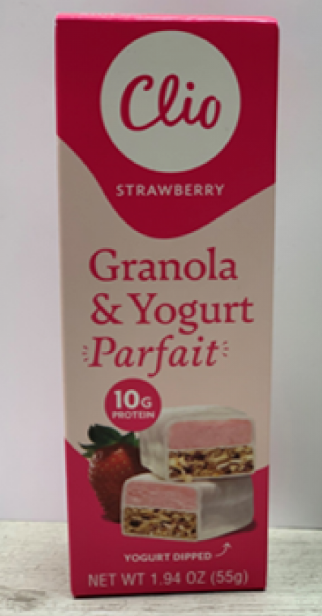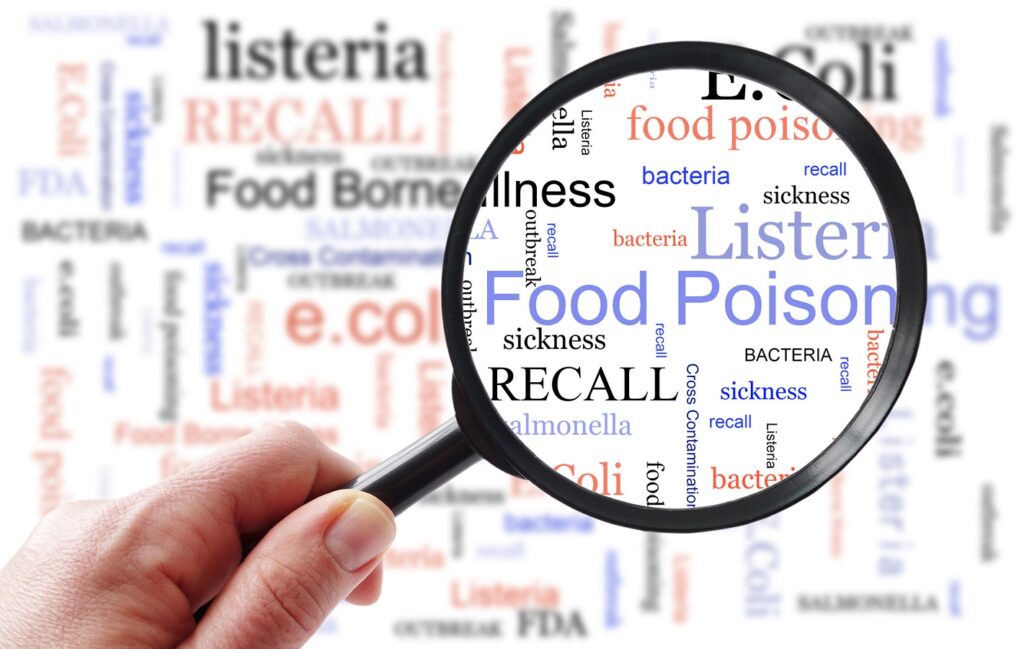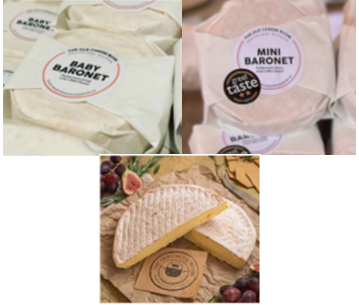The FDA reported that Clio Snacks (Piscataway, N.J) recalled 581 Strawberry Granola & Greek Yogurt Parfait Bar cases due to contamination with Listeria monocytogenes. The product was distributed to select Walmart stores between 3/5/2023 and 3/8/2023. The Strawberry Granola & Greek Yogurt Parfait Bar comes in a single-serving box with UPC Code 854021008152, Lot Number 048C2023, and an expiration date of 4/30/2023 stamped on the side of the box. No illnesses have been reported to date. The exposure was found at a third-party manufacturer’s facility where Parfait Bars are produced. The recall resulted from a routine testing program by the company which revealed that the affected Strawberry Parfait product produced by Clio’s contract manufacturer might contain Listeria monocytogenes. The third-party manufacturer has ceased production, and Clio has ceased distributing the affected product while the FDA and the company continue investigating what caused the problem. @ https://www.fda.gov/safety/recalls-market-withdrawals-safety-alerts/regional-recall-clio-snacks-voluntarily-recalls-strawberry-granola-greek-yogurt-parfait-bars-select
ruth
Clio Snacks of Piscataway, N.J. is voluntarily recalling 581 cases of its Strawberry Granola & Greek Yogurt Parfait Bar due to potential contamination with Listeria monocytogenes,
ruth
The CORE list of outbreaks and adverse events includes 4 cases on March 15, 2023. For the outbreak of Salmonella Hartford (ref # 1144) first reported last week, there still is not a food product identified, and the case count has increased from 31 to 47 cases. In the hepatitis A virus outbreak, the number of patients decreased from 9 to 5. There was no change in the others two cases. @ https://www.fda.gov/food/outbreaks-foodborne-illness/investigations-foodborne-illness-outbreaks?utm_medium=email&utm_source=govdelivery
The following is a list of outbreak and adverse event investigations primarily being managed by FDA’s CORE Response Teams.
ruth
The Sedgwick brand protection Recall Index is the essential reference for manufacturers and retailers seeking impartial and reliable perspectives on past, present, and future recall data and product safety trends. In the food and beverage area, a massive salmonella outbreak of whole onions dominated food safety news for a portion of the fourth quarter and led to a 1,547% increase in units recalled compared to the third quarter. However, total recall events in 2021 (414) fell to their lowest number in 11 years. The nine pathogens tracked by CDC saw a decrease in recall activity of 29% between 2019 and 2020. The COVID-19 pandemic might have caused some of the declines. Impacted units in 2021 doubled from the previous year but remained significantly below their 10-year annual average (52.1M vs. 125.3M). The number of FDA food recalls increased slightly at a rate of 2.2 % (from 414 recalls in 2021 to 423 recalls in 2022). @ https://marketing.sedgwick.com/acton/attachment/4952/f-3fcbb3b3-5370-4caf-b8de-7aa34979e22f/1/-/-/-/-/Sedgwick%20-%20Brand%20Protection%20-%20State%20of%20the%20Nation%202022%20Recall%20Index%20Report.pdf
ruth
In the UK, the FSA issues Product Withdrawal Information Notices and Product Recall Information Notices for the Old Cheese Room, recalling Baronet, Baby Baronet, and Mini Baronet Soft Cheese because Listeria monocytogenes has been found in some batches of these products. The recalled products include Baronet Soft Cheese I kg, Baby Baronet Soft Cheese 200g, and Mini Baronet Soft Cheese 270g.@ https://www.food.gov.uk/news-alerts/alert/fsa-prin-07-2023




